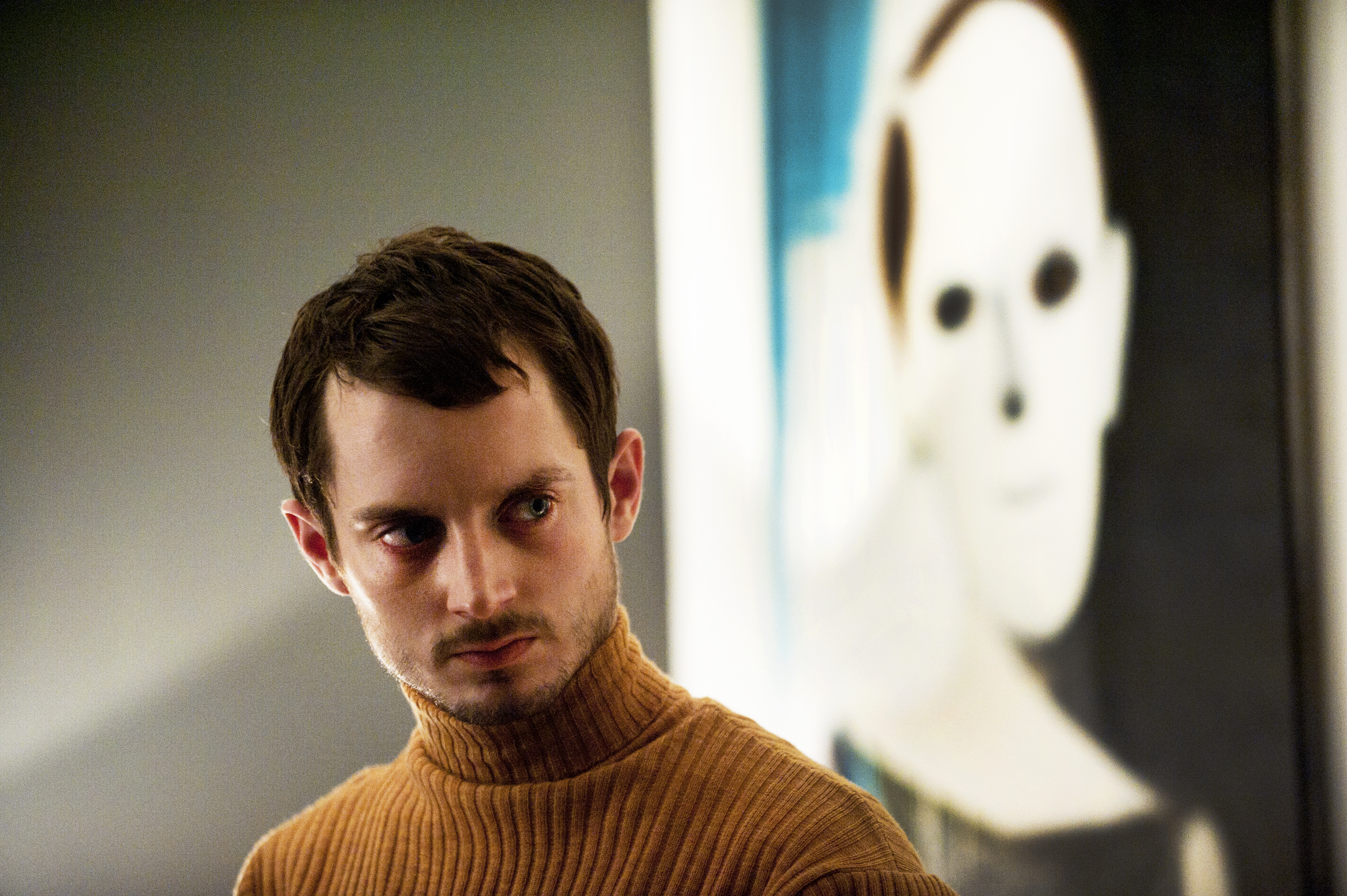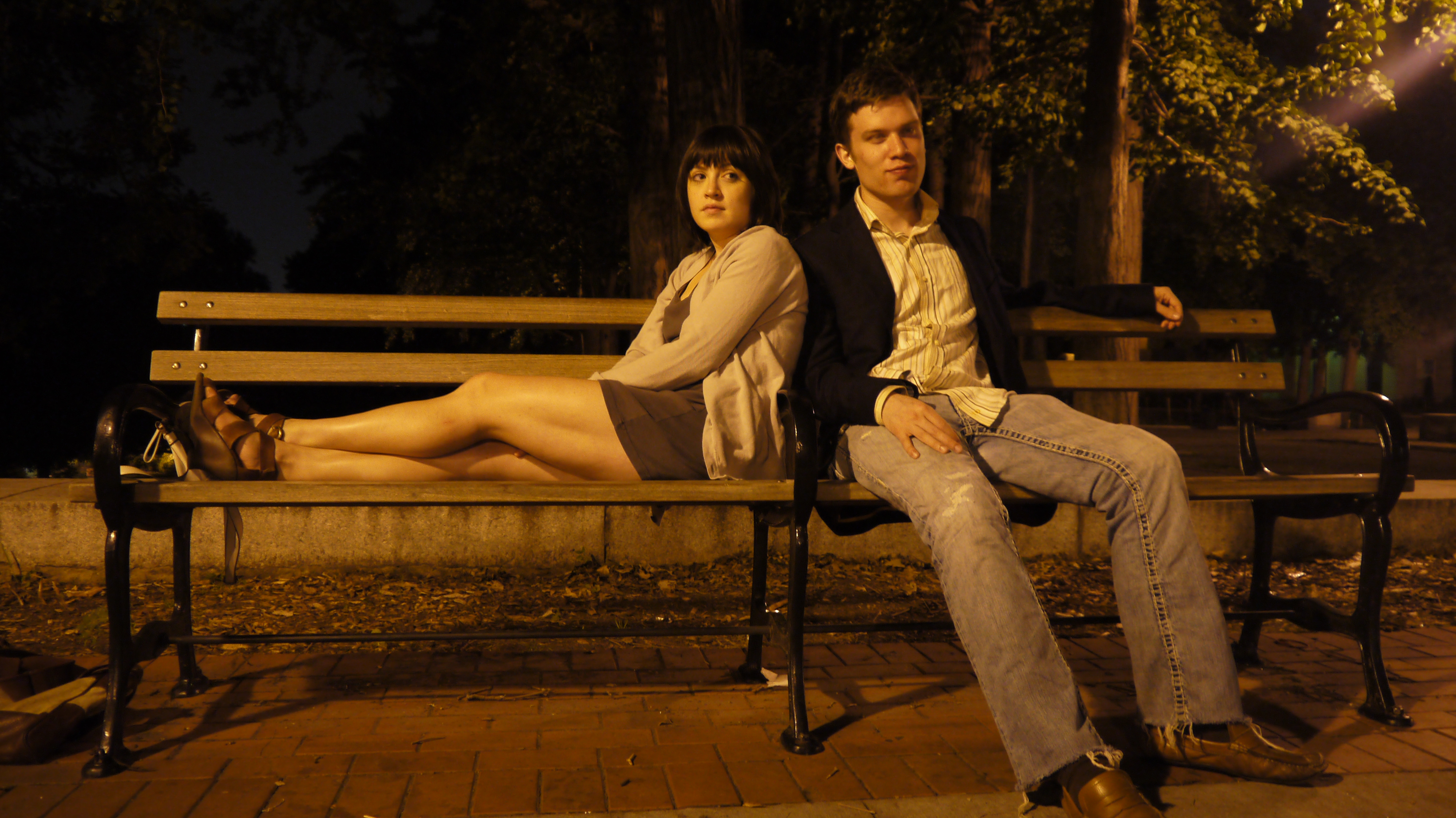The Attack
Opens Fri., July 12 at Sundance Cinemas. Rated R. 102 minutes.
The stereotype of the suicide bomber, as we all know, is Muslim, male, and mad about religion or Israel (which usually amounts to the same thing). For that reason, a Tel Aviv surgeon is confounded by the torso of a bombing victim in the morgue (one of 18). She’s female. She’s Christian. She’s the suspect, say the police. And she’s his wife.
Compounding matters even further, Dr. Jaafari (Ali Suliman) is a Palestinian-born Israeli citizen, a secular scotch drinker, and someone who wants desperately to believe in peaceful assimilation. In flashbacks and ghostly visitations, his wife Sihem (Reymoud Amsalem) doesn’t wear a veil, doesn’t talk politics, so Jaafari is stunned by the cops’ allegations.
Based on a 2005 novel by a retired Algerian military officer who once battled fundamentalists, The Attack tries hard to avoid the usual binary Palestinian/Israeli opposing worldviews. Director Ziad Doueiri is, like his protagonist, something of a hybrid: born in Lebanon, a veteran Hollywood cameraman (for Quentin Tarantino and others) who made an auspicious debut a dozen years ago with West Beirut. Divided city, divided nations, divided hero—these cruelly delineated states of being can make impartial judgments impossible. (One man’s freedom fighter is another man’s terrorist . . . it’s like stepping through the looking-glass.) Yet after a brutal police interrogation, Jaafari decides to launch his own forensic investigation, going back to visit his family in Nablus, where fiery imams spew hatred, his wife is featured in celebratory martyrdom posters, and no one will give him a direct answer.
Surgery is one thing, detective work is another. Jaafari is indignant in the ER, tending to the mangled bodies of children—this before his wife is implicated—and asking of the perpetrators, “What is wrong with these people?” He genuinely doesn’t understand. His journey to Nablus thus also becomes a process of self-discovery, a reclaiming of Palestinian identity, and this is where The Attack becomes somewhat muddled. Both we and Jaafari suspect that Islamic radicals somehow “brainwashed my wife” and made Sihem the unwitting agent of their scheme. Instead his search leads to a different—and to my mind implausible—faction.
There’s always a fresh grievance in the Middle East, and Sihem, in posthumous testimony on VHS (!), cites 2002’s “Jenin Massacre,” about which opinions will never be settled. Jaafari is less political than his wife, or perhaps more of an amnesiac about recent history. He’s a successful, practical man who doesn’t want to think about his own humble roots or his wife’s deeper motives. If The Attack ends on a frustratingly indecisive note, where notions of blame and balance fall away, it speaks to Jaafari’s awkward position. Sihem stepped through the looking-glass, but he’s forever caught on the threshold. Brian Miller
The History of Future Folk
Runs Fri., July 12–Thurs., July 18 at Northwest Film Forum. Not rated. 86 minutes.
Some aspects of Brooklyn hipster culture are insufferable, like fixies and ironic facial hair. But folk musicians from outer space? Who wear red plastic buckets on their heads and play banjo ballads? Future Folk is a real musical duo with a 10-year history performing on New York stages, and they’re an entirely serious yet winningly silly combo. Their musical style could be described as bluegrass—in space! Nils d’Aulaire plays Bill (his alias on Earth), who, back on his home planet of Hondo, is actually General Trius. Assigned to scout out our planet for invasion, Bill has meanwhile married and is raising a cute daughter—and his bedtime stories to her sound suspiciously like the tale we’re watching. Belief in them is optional.
The other half of Future Folk, Jay Klaitz, plays the inept Hondorian assassin Kevin, charged with killing Gen. Trius and getting the whole we-must-conquer-Earth mission back on track. Naturally he also develops an affection for this seed colony, takes up guitar, and develops a crush on a Latina cop (April Hernandez). Destroying all life on our planet soon takes a backseat to crooning folk songs to the ever-larger throngs at Larry’s bar (’80s metal icon Dee Snider).
Directed by Jeremy Kipp Walker and J. Anderson Mitchell, this is a shaggy, enjoyable, homebrewed sci-fi tale where the costumes and plot resemble one of those lo-fi “sweded” remakes in Be Kind Rewind. Kevin and Bill are the galaxy’s worst alien invaders, meaning they just don’t have the heart to exterminate us. Inevitably they shift allegiances when Hondo sends a lethal virus our way. “We don’t have three Earth weeks!” to save the planet, says Bill. How scary is this potential Armageddon? Well, remember this is a bedtime story. Brian Miller
Maniac
Runs Fri., July 12–Thurs., July 18 at Grand Illusion. Not rated. 90 minutes.
The 1980 Maniac is one of those periodic exploitation concepts that pay off handsomely: low budget, killer title, horrified reviews that can be used to drum up interest, and good timing (the malaise era was at its death-gasp nadir). The thing made a huge profit.
A remake can’t capture that nervy, subversive vibe—there’s no surprise left. That’s partly why the recent reboots of Halloween and The Texas Chainsaw Massacre felt misjudged; the budgets were too high, the acting too competent, the properties already too enshrined in pop culture. This Maniac remake is grungier than those efforts, so I suppose it has that going for it. But without the original barrel-scraping atmosphere, even beachcombers of bucket-of-blood horror might be tested by its single-note idea and approach.
Like the original film, this one relies heavily on shots from the killer’s point of view. So we don’t see much of Elijah Wood, the Lord of the Rings star, unless he passes in front of a mirror or has a flashback to his miserable childhood with a mother who exposed him to various unpleasant realities. He plays Frank, a keeper of mannequins. Frank’s big problem is needing wigs for his models, which he takes from women unfortunate enough to have come under his gaze. We see this habit play out in scenes that spare no anatomical detail.
Wood’s game for the challenge, although his voice is not strong or distinctive enough to carry the long sections of POV footage. The photographer who tests Frank’s murderous obsession is played by Nora Arnezeder (Safe House), who shares some of his fascination with mannequins and almost inspires him to do more than slaughter the women in his life.
There is no reason a horror picture couldn’t put these pieces together into something interesting, but director Franck Khalfoun is not sharp enough for the job. The homages and synth-pulsing music (by the French musician known as Rob) are decorative without drawing any actual blood, and the device of aligning the audience with the viewpoint of a killer just sits there. What’s left is a kind of second-hand ugliness, without even the creepy energy of a horror original. That’s a description of an especially dispiriting movie. Robert Horton
PMore Than Honey
Opens Fri., July 12 at Varsity. Not rated. 96 minutes.
Instead of making the underperforming White House Down, perhaps director Roland Emmerich—the master of disaster behind 2012 and The Day After Tomorrow—should’ve stuck with his usual instinct for large-scale destruction. He should’ve made a movie about bees.
More Than Honey demonstrates why the subject is ripe for apocalyptic treatment. Banish all thoughts of The Swarm, the ’70s Michael Caine flop about killer bees taking over; the real threat is not that bees will attack us, but abandon us. Albert Einstein has been quoted as saying that if bees were to disappear from the Earth, humankind would die off after four years—and while the attribution might be apocryphal, the observation points out how the agricultural grid is dependent on those tiny, buzzing ministers of fertility.
You may have heard about some of this already, since docs Colony and Queen of the Sun have recently played Seattle. Colony collapse disorder (or CCD) is a widespread phenomenon in the world of beekeeping, and the millions of bees that prop up annual harvests are disappearing in vast numbers. More Than Honey is more than information, however. The info’s there if you want it, but mostly it plays like a humming, honey-dripped dream; director Markus Imhoof is besotted with bees, and he makes them the captivating heroes of his movie. In his extreme close-ups of bees, they take on the grandeur they deserve.
The movie ranges around—we visit China to witness the depressing effects of a major bee die-off, for instance. But Imhoof arranges his film around two bee-men half a world apart: Fred Jaggi, a wizened Swiss apiarist whose grandfather established the family’s beekeeping business, and John Miller, a proud U.S. capitalist who deals in bees by the zillions, trucking them around the country to pollinate huge swaths of fruit and nut trees. Jaggi looks like he just popped his wrinkled head out of a cuckoo clock; Miller beams with the confidence of a shark. The contrast between Old World traditionalist and go-go 21st-century tycoon is perhaps a bit overstated, but both men are bewildered by CCD. Imhoof trains his camera on Miller’s reaction as crates of bees are opened after being transported—thousands of dead bees visible on delivery—and the sight dismays even the can-do American.
A lovely movie—but please, let’s get back to The Swarm. If the accidental release of killer bees gave rise to that horror movie, the irony is that aggressive African bees might prove crucial in saving the planet. Imhoof tracks a group of scientists creating hybrid bee colonies and testing them on an island. The place is so remote that the bees can’t escape to dominate the world. But maybe they should. Robert Horton
PThe Unspeakable Act
Runs Fri., July 12–Thurs., July 18 at Northwest Film Forum. Not rated. 91 minutes.
It doesn’t take long for The Unspeakable Act to go there. We’ve barely been ushered into the Kimball family unit, a normal-looking Brooklyn clan, when teenage daughter Jackie (Tallie Medel) casually introduces the subject that she elsewhere describes as “the I-word.” Jackie is troubled—distraught, actually—that her brother Matthew (Sky Hirschkron) has his first steady girlfriend and is leaving for Princeton soon. In the plainest way possible, she tells us about how difficult is it to be in love with a member of one’s own family.
That’s right. The I-word is incest, but the idea that this taboo subject can be treated only sensationalistically is quickly dispelled by writer/director Dan Sallitt’s approach. This quiet microbudget film sails along as smoothly and easily as Jackie’s bicycle glides through Brooklyn in the opening shots.
This isn’t a story of sexual malfunction: Jackie and Matthew have never consummated anything. Now he’s beginning to grow beyond their unusual emotional closeness, and she’s not at all interested in moving on. Jackie’s spacy mother and sister exchange glances when Jackie—who doesn’t hide things well—acts out. This is a film of small looks and expressive body language: The way Jackie’s mother stirs the coffee in the French drip is a definitive index of her distracted character. A filmmaker who can capture those moments does not need reams of dialogue.
Nevertheless, the dialogue sounds authentic and is frequently funny. Some who watch The Unspeakable Act may find the acting flat or rough around the edges. That might be true, although Sallitt appears to be deliberately cultivating that informal style.
Medel, however, is a genuine original. Barely five feet tall with a watchful gaze and quick delivery, she’s not a traditional leading lady, and she doesn’t waste time trying to project the energy of an adorable indie it-girl. She is just stubbornly herself—sometimes collected, sometimes a mess, always exact.
Jackie eventually gets into therapy (Caroline Luft is dead-on as the poker-faced psychologist), but at no time does Sallitt settle for a standard coming-of-age scenario—although that scenario is actually in the movie’s DNA. Instead, The Unspeakable Act carefully hews its path, shirking melodrama and homing in on something very human. It’s a weirdly calm treatment of an anxious topic. Robert Horton
The Way, Way Back
Opens Fri., July 12 at Guild 45th and other theaters. Rated PG-13. 102 minutes.
With its promo push “from the studio that brought you Little Miss Sunshine and Juno” (Fox Searchlight), the potential charm of this summertime coming-of-ager gets shrink-wrapped by the packaging. What ought to be indie feels more like stale product left in the deli case too long. 14-year-old Duncan (Liam James) and his divorced mother Pam (Toni Colette) are dragged to a Massachusetts beach rental by her overbearing new bf Trent (Steve Carell). Trent. There is no way we are going to like a guy named that (and a car salesman, of course), and Duncan emphatically dislikes Trent, who takes every opportunity to belittle the shy, passive teen. In the movie’s very first scene, with Trent’s teen daughter and Pam asleep in the car, Trent says Duncan rates only a 3 on a scale of 1 to 10. Trent is an asshole, and the movie will do nothing to complicate that assessment.
Nor does it provide anything remotely surprising or original over the next 102 minutes. Co-directors/writers Nat Faxon and Jim Rash are journeymen Hollywood comics who got lucky enough to have their names attached to a draft of The Descendants (Alexander Payne politely minimized their contribution). Oscars in hand, they pitched this awfully broad and familiar tale, in which unhappy Duncan finds a sympathetic mentor in Owen (Sam Rockwell), the flippant king of the local water park where Duncan lands a summer job. Owen is the anti-Trent: goofy and fun-loving, spitting out nicknames and bald lies, treating his staff with affectionate sarcasm, and harboring a not-so-secret thing for his boss (Maya Rudolph). While the drunken adults enjoy “spring break for adults” (per Duncan’s glum crush object, played by AnnaSophia Robb), Duncan finds new pals and self-confidence. We’ve seen this story a thousand times.
But what are its incidental pleasures? Rockwell, Rockwell, and Rockwell. Faxon and Rash—who also act in the film—give him long, nonsensical dialogues that feel ad-libbed and loose. He’s got happy feet and a motormouth. “I know about 46 ways to kill a clown,” he boasts. (Unfortunately, this is not Seven Psychopaths, so there’s no way to test his prowess.) Owen’s quotations of ’80s cheese-rock lyrics suggests how The Way, Way Back might better have been a period-set raunch-com, with more misbehavior for both the adults and teens. Instead, Faxon and Rash create a mood of unearned nostalgia that wafts like a car air-freshener called That One Special Summer That Changed Everything. For Duncan maybe, but not us. Brian Miller
E
film@seattleweekly.com








